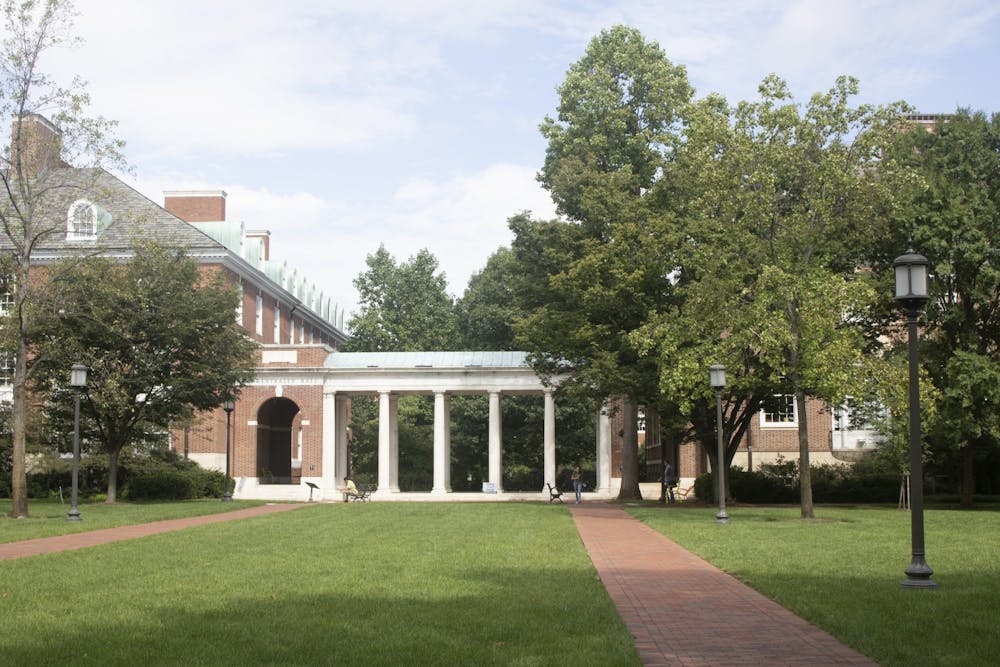The University announced on Jan. 23 that the Humanities Collaboratory will double in size after receiving a $1.8 million grant from the Andrew W. Mellon Foundation.
Founded in 2017, the Collaboratory has allowed high-achieving students at the Community College of Baltimore County and nearby historically black colleges and universities to conduct research at Hopkins during the summer. Now the program will be open to students from any community college in Maryland.
The grant will allow the Collaboratory to run for the next three summers and increase its class size from 10 to 24. In addition, the grant will allow the program to invite graduate and doctoral students in the humanities to join the Collaboratory as mentors.
According to Program Director Natalie Strobach, who also serves as the Krieger School of Arts and Sciences’ assistant dean of undergraduate research, almost all of the students who have participated in the Collaboratory have gone on to a four-year university, graduate school or are in the process of applying.
In an interview with The News-Letter, Mohammed Khalid described applying to the program while a student at the Community College of Baltimore County.
“I did not have a clue about how research worked, how a collaborative atmosphere with a four-year university operated,” he said.
During his summer with the Collaboratory in 2018, Khalid pursued his interest in cybersecurity and information science, completing a project titled “Mass Media’s Ideology About the Middle East and Terrorists and the Impossibility of the Individual.”
Khalid is part of the Ronald E. McNair Postbaccalaureate Achievement Program at the University of Maryland, Baltimore County. He is on track to obtain a PhD within 10 years of beginning his bachelor’s degree.
“The reason I became a McNair Scholar — the impetus and driving force for this — was the program that I did at Hopkins,” Khalid said.
Strobach sees the program as a way to break down barriers of higher education, allowing students from a diverse socioeconomic or ethnic background to succeed in a context in which they are greatly underrepresented.
In an interview with The News-Letter, participant of the Collaboratory Daniel Trovato mentioned how the program provides resources for advancing students’ education in addition to supporting their projects. He now studies Criminology at the University of Maryland, College Park.
“They provided help for writing CVs, networking opportunities and even preparation materials and courses for the GRE exams,” Trovato said.
In an email to The News-Letter, Strobach explained how the program’s success has impacted the Hopkins undergraduate community.
The Andrew W. Mellon Foundation grant, she stated, will help to diversify education and research at Hopkins. By providing access and lowering costs of applying to graduate school programs, the Humanities Collaboratory contributes to what Strobach refers to as “diversifying higher education from the bottom up.”
“Beginning in Fall of 2020, we will offer three ‘seminars’ for Hopkins students that will follow the same student-designed model. Then, and this is the very cool and unique part, the three sections will meet and share a collaboratory session together weekly to have cross-conversation between sections,” she wrote.
Diversifying the types of people who pursue doctorates in humanities-related programs, Strobach wrote, is of growing importance when examining the demographic breakdown of professors at top universities.
Especially among first-generation college graduates, she added, the study of the humanities may seem less relevant than highly in-demand and professionally oriented STEM skills.
A McNair alum herself, Strobach described the students’ final research symposium, where they present their original work to faculty, friends and family.
“As a first-generation American, first-generation to college and low-income student, my parents did not always understand what I was doing [as a humanities student] or why I was doing it. When you are able to present your work to your family, friends, boyfriends... others are able to understand the importance of the humanities and most importantly feel a sense of pride,” she said.
Trovato, who is interested in rehabilitation and justice, also spoke to the importance of interdisciplinary research.
“If you come from a background of humanities and you come to other fields, you’re well-rounded and can become a better researcher in your field,” he said. “I want to become a well-rounded researcher.”
Trovato elaborated on how participating in the Collaboratory affected him.
“I didn’t even apply to a four-year university before the Collaboratory,” he said. “After that summer, I decided I wanted my PhD. Almost everyone from the program now wants to go to graduate school.”





